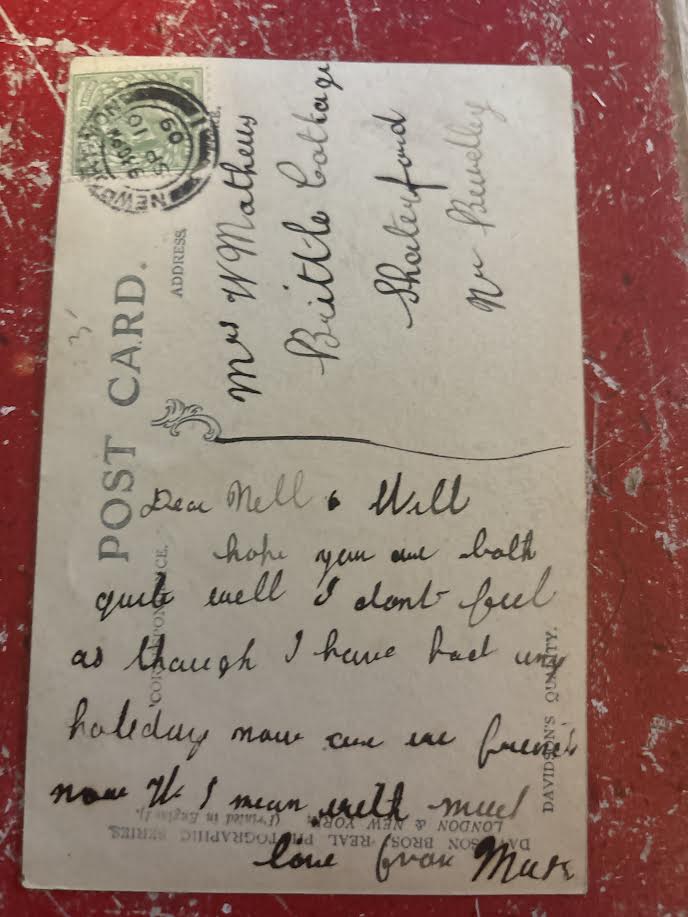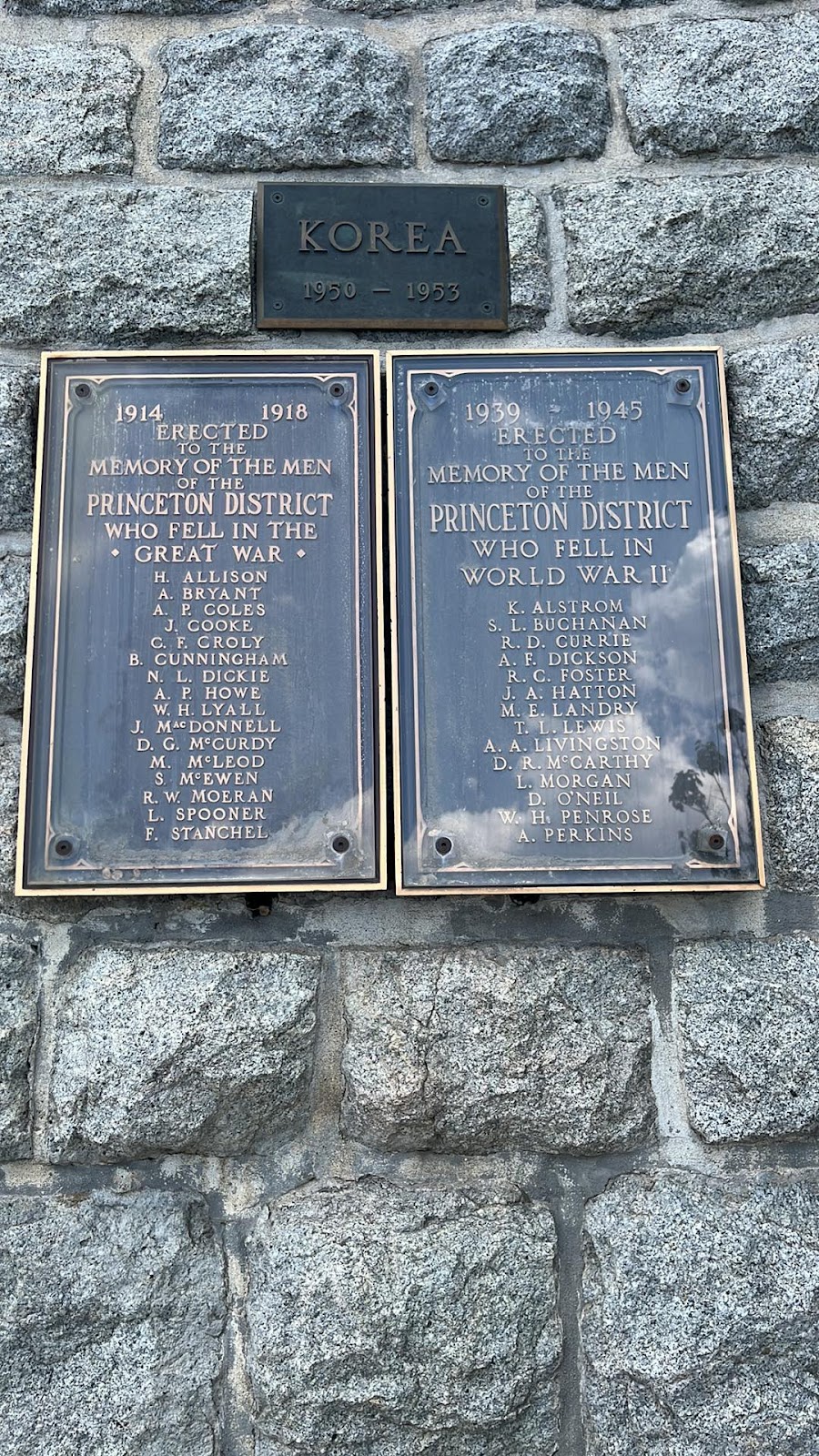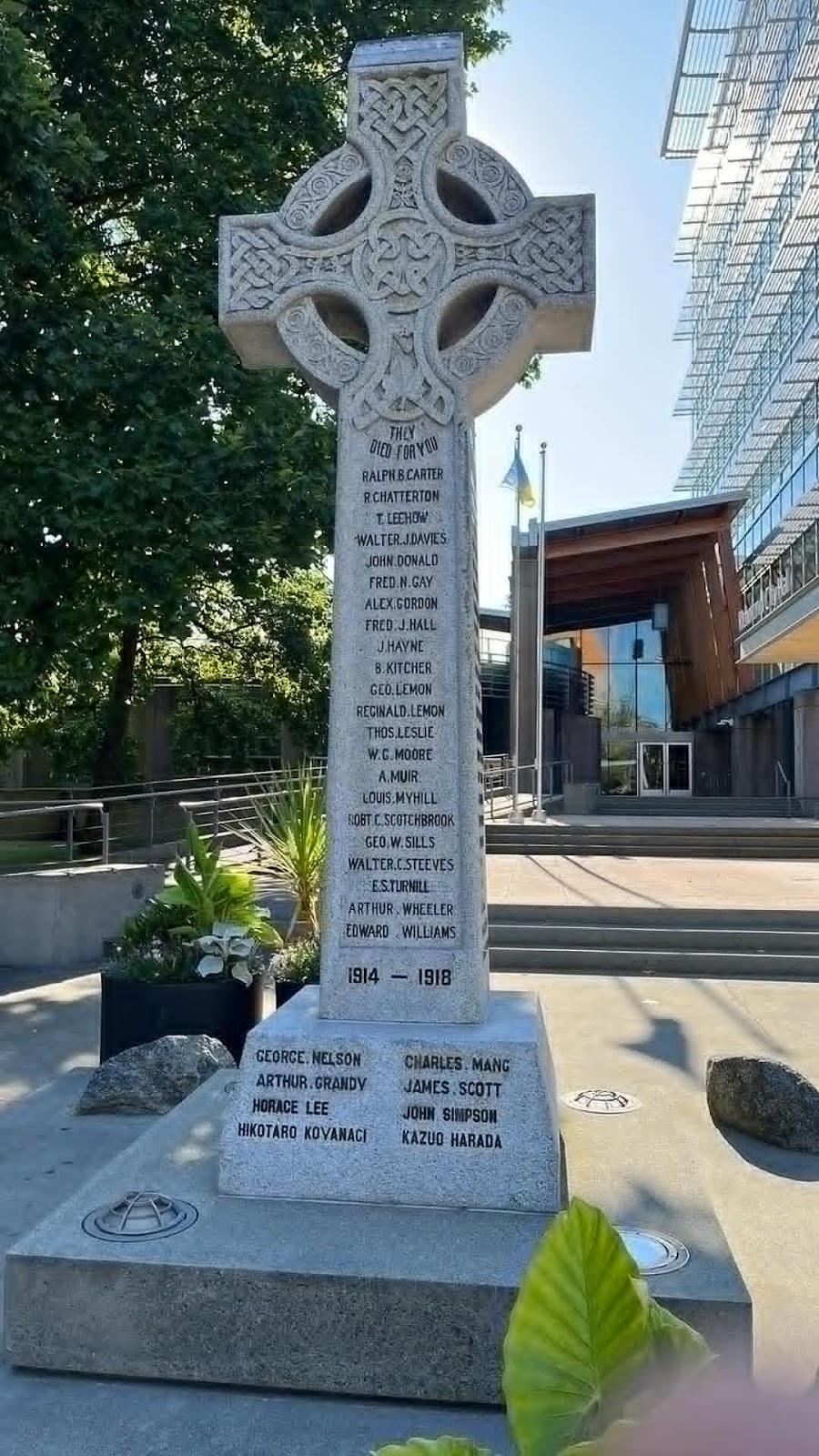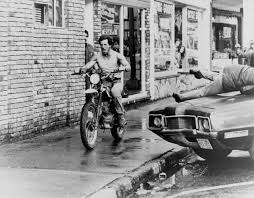I took a few photographs at Queen Elizabeth Park in yesterday. I walked up to the park, which is at 29th and Cambie in Vancouver, with my wife and kid from the King Edward SkyTrain station. I worked near Queen Elizabeth Park in the nineties and used to go there for my lunch hour to read. Not much has changed. There is a food truck now at the top of Little Mountain. It sells those twirling fries (salt and vinegar, pepper, Sriracha) on a skewer, fried mac and cheese, wild cod tacos among other dishes. I see there is a disc golf course. Disc golfers have to throw a Frisbee instead of hitting a golf ball around a course of eighteen holes, like golf. Only the holes are baskets.
The clock, which needs a wind, was donated by the Lions' Mandarin Club, in 1991.
This was a quarry a century ago. The park is named after Queen Elizabeth's mother, Queen Elizabeth or the Queen Mom. She visited Vancouver as WWII was breaking out.
My back is out again. I can't lift my arms easily. I was trying to get a shot of the West End from the park. Did not quite make it.
King George VI and Elizabeth (above center) visited Vancouver in 1939. Looking to shore up support among the colonials, they made their way into town from Banff via Kamloops. What fighting in Europe, half the Earth away, had to with Vancouverites is not clear. What was stirring in the Pacific would have probably more relevant.
There is belief that George's older brother did not abdicate in 1936 because he wanted to marry a divorcee and foreigner. No precedent was set -- Prince Harry did the same a few years ago. He was a Nazi sympathizer and possible collaborator. The royals were in Canada for the England to get a better grip on Canadian sentiment obviously.
************************
The Act Prohibiting Importation of slaves of 1807, 2 Stat. 426, brought to bear March, 2, 1807 became a US federal law prohibiting the importation of slaves to the country. The order, signed by Thomas Jefferson, third President of the US, took effect January 1, 1808. The short of this new law was anyone caught importing people to the US to be slaves would be arrested and subject to capital punishment. Here's the thing, every subsequent President up until the Civil War, including Jefferson.
I just finished reading this book:
I checked The Last Slave Ship: The True Story of How Clotilda Was Found, Her Descendants, and Extraordinary Reckoning out of the Richmond Library here in Richmond a couple of weeks ago. The Clotilda is the name of the last slaving ship ever to run slaves into the US. The Clotilda sneaked into Alabama, near Mobile, in 1860. Timothy Meaher, the owner, did it on a bet. Meaher made the bet while captaining a steamboat. He strutted after a dinner party and told all he had nothing but scorn for the government. Then he had the Coltilda burnt and sunk to hide the evidence.
It seems every single President from 1808 until the end of the Civil War categorically pardoned captains convicted of importing captives from Africa -- except one. Abraham Lincoln came down on side of the ruling judge, W.D. Shipman, who proclaimed the following in sentencing of Nathaniel Gordon to Gordon, captain of the Erie:
"Do not attempt to hide [slaving's] enormity from yourself: "think of the cruelty and and wickedness of seizing nearly a thousand fellow beings, who never did you harm, and thrusting them beneath the decks of a small ship, beneath a burning sun, to die of disease and suffocation, or be transported to distant lands, and be consigned to distant lands, and be consigned, they and their posterity, to a fate far more cruel than death," Shipman stated.



















